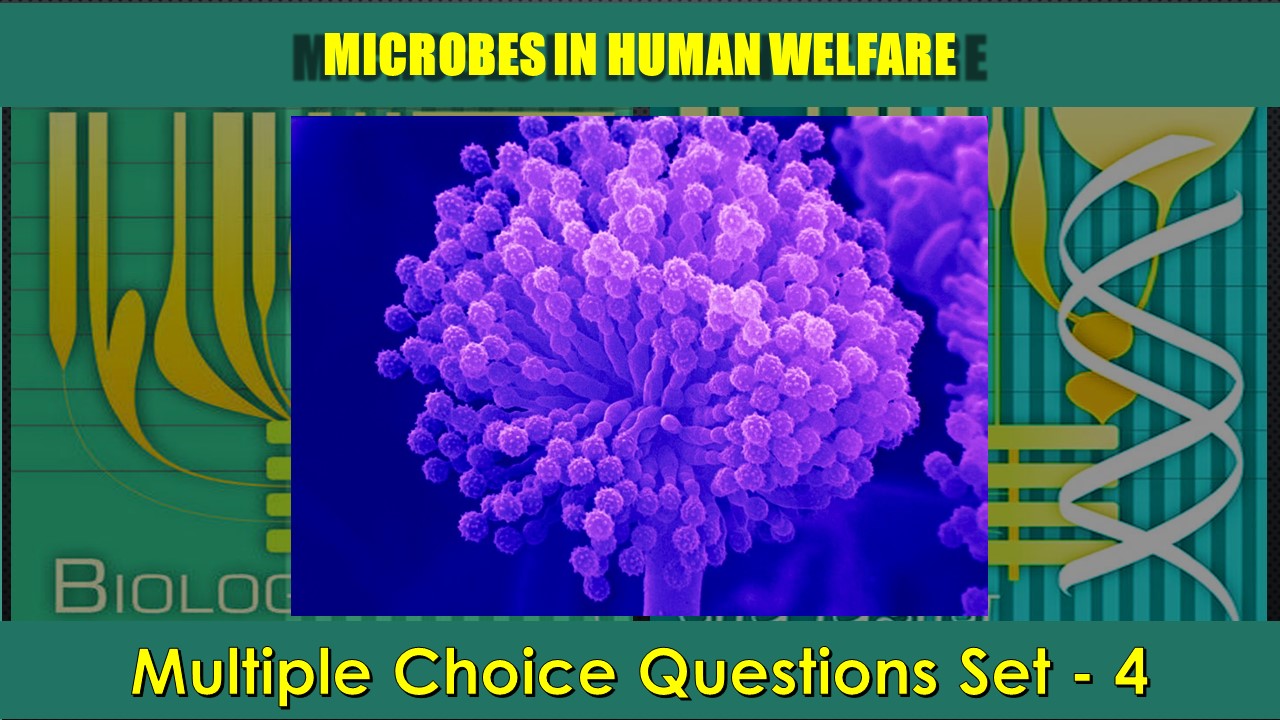CBSE Class 12 Microbes in Human Welfare Multiple Choice Questions with Answers. MCQ Questions Class 12 Microbes in Human Welfare with Answers Is Prepared Based on Latest Exam Pattern. Students can solve NCERT MCQ questions Class 12 Microbes in Human Welfare with Answers to know their preparation level.
Students who are searching for NCERT MCQ Questions Class 12 Microbes in Human Welfare with Answers are compiled here to get good practice on all fundamentals. Know your preparation level on MCQ Questions for Class 12 Microbes in Human Welfare with Answers. You can also verify your answers from the provided MCQ Class 12 Microbes in Human Welfare with Answers. So, ace up your preparation with MCQ of Class 12 Biology Examinations.
MCQ Questions Class 12 Microbes in Human Welfare with Answers - Set - 4
Question 1:
A patient brought to a hospital with myocardial infarction is normally immediately given
(a) penicillin
(b) streptokinase
(c) cyclosporin-A
(d) statins.
Correct Answer – (B)
Question 2:
A good producer of citric acid is
(a) Clostridium
(b) Saccharomyces
(c) Aspergillus
(d) Pseudomonas.
Correct Answer – (C)
Question 3:
Which of the following is a commercial blood cholesterol lowering agent?
(a) Lipases
(b) Cyclosporin A
(c) Statin
(d) Streptokinase
Correct Answer – (C)
Question 4:
For retting of jute, the fermenting microbe is:
(a) Methanophilic bacteria
(b) Butyric acid bacteria
(c) Helicobactor pylon
(d) Streptococcus lactin
Correct Answer – (B)
Question 5:
Antibiotics are:
(a) Medicines
(b) Toxin
(c) Plants
(d) Syrups
Correct Answer – (A)
MCQ Questions Class 12 Microbes in Human Welfare With Answers
Question 6:
Continuous addition of sugars in ‘fed batch’ fermentation is done to
(a) produce methane
(b) obtain antibiotics
(c) purify enzymes
(d) degrade sewage.
Correct Answer – (C)
Question 7:
Which of the following is correctly matched for the product produced by them?
(a) Methanobacterium : Lactic acid
(b) Penicillium notatum : Acetic acid
(c) Sacchromyces cerevisiae : Ethanol
(d) Acetobacter aceti : Antibiotics
Correct Answer – (C)
Question 8:
Dough kept overnight in warm weather becomes soft and spongy because of
(a) absorption of carbon dioxide from atmosphere
(b) fermentation
(c) cohesion
(d) osmosis.
Correct Answer – (B)
Question 9:
A free-living aerobic and non-photosynthetic nitrogen fixing bacterium is:
(a) Anabaena
(b) Clostridium
(c) Azotobactor
(d) Rhizobium
Correct Answer – (C)
Question 10:
Streptomycin is produced by:
(a) By Streptomyces Scoleus
(b) By Streptomyces fradiae
(c) By Streptomyces venezueleae
(d) By Streptomyces griseus
Correct Answer – (D)
- NCERT Solutions Class 11 Chemistry Chapter 1 : Some Basic Concepts of Chemistry
- NCERT Solutions Class 11 Chemistry Chapter 2 : Structure Of The Atom
- NCERT Solutions Class 11 Chemistry Chapter 3 : Classification of Elements and Periodicity in Properties
- NCERT Solutions Class 11 Chemistry Chapter 4 : Chemical Bonding and Molecular Structure
- NCERT Solutions Class 11 Chemistry Chapter 5 : States of Matter
- NCERT Solutions Class 11 Chemistry Chapter 6 : Thermodynamics
- NCERT Solutions Class 11 Chemistry Chapter 7 : Equilibrium
- NCERT Solutions Class 11 Chemistry Chapter 8 : Redox Reactions
- NCERT Solutions Class 11 Chemistry Chapter 9 : Hydrogen
- NCERT Solutions Class 11 Chemistry Chapter 10 : The s-Block Elements
- NCERT Solutions Class 11 Chemistry Chapter 11 : The p-Block Elements
- NCERT Solutions Class 11 Chemistry Chapter 12 : Organic Chemistry: Some Basic Principles and Techniques
- NCERT Solutions Class 11 Chemistry Chapter 13 : Hydrocarbons
- NCERT Solutions Class 11 Chemistry Chapter 14 : Environmental Chemistry




